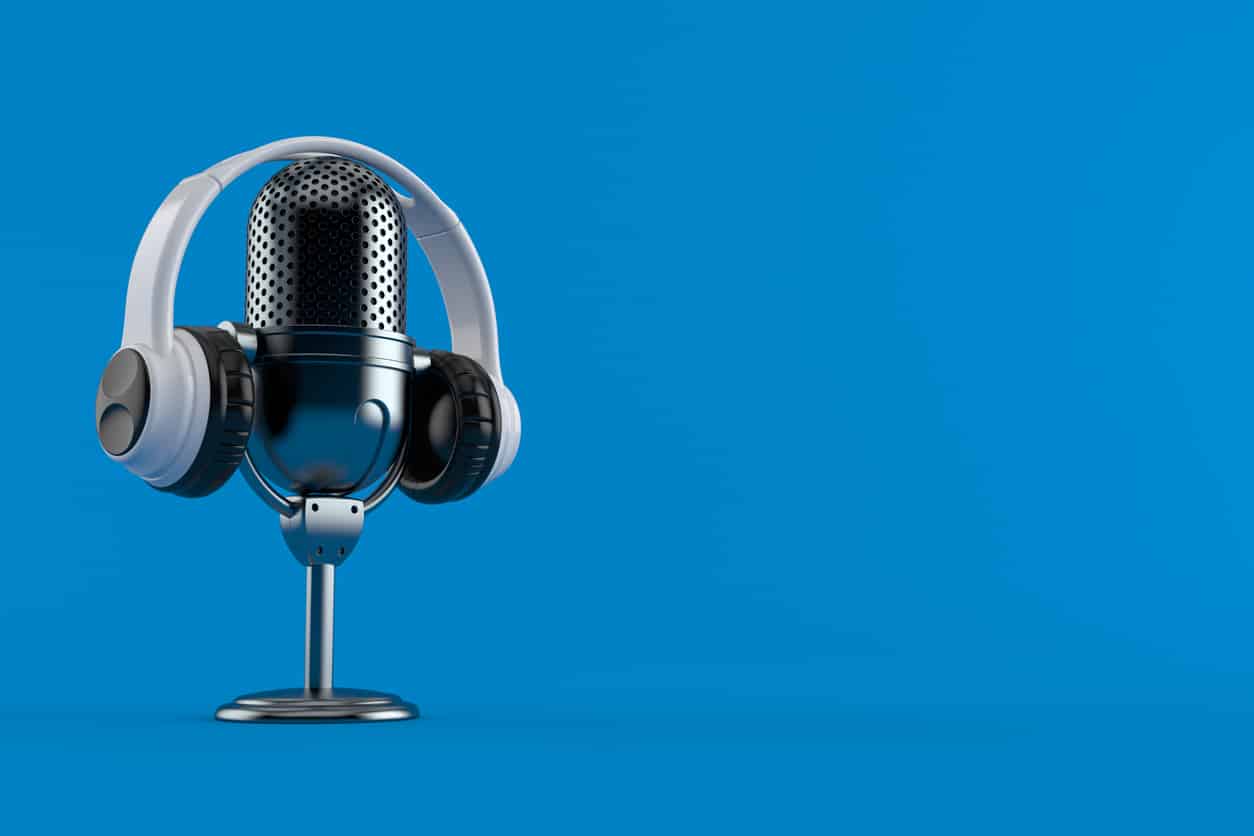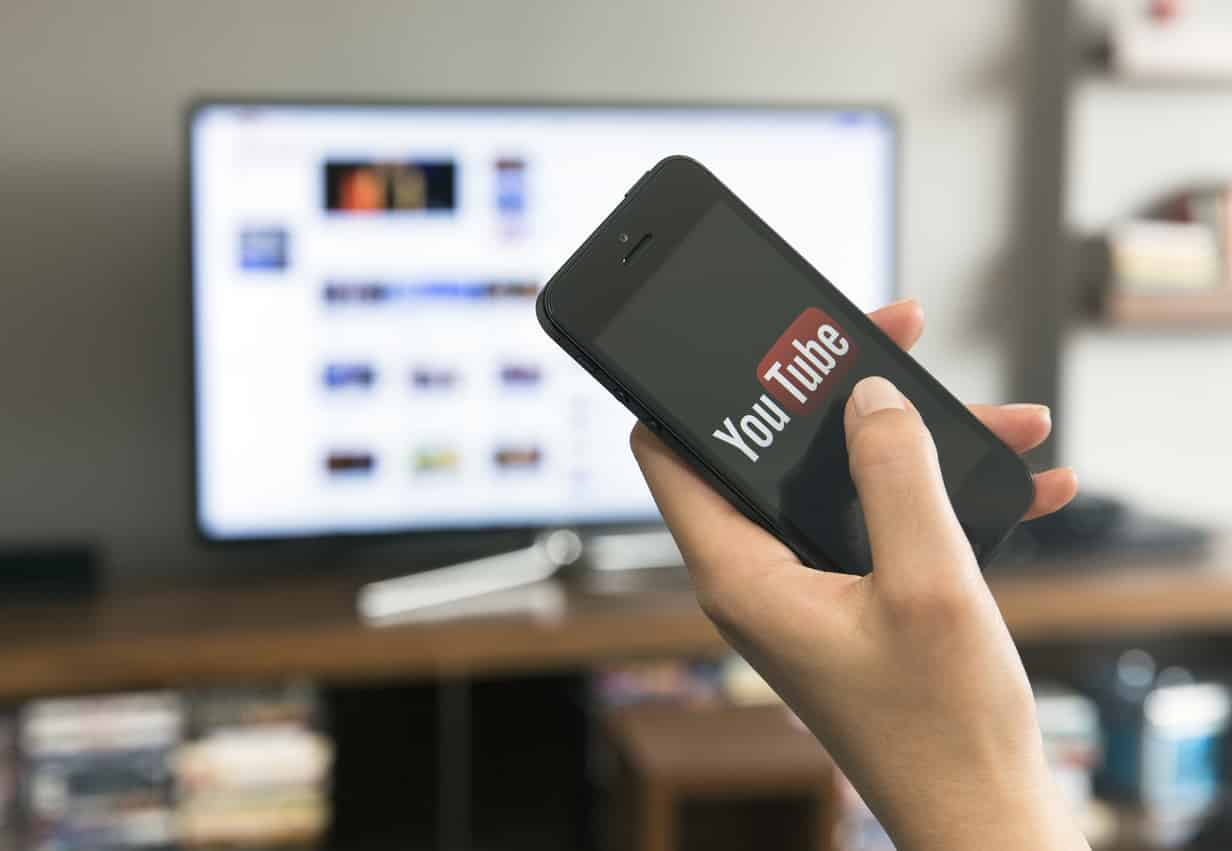- What is a Podcast?
- Popularity of Podcasting
- Reasons to add Podcasts to your Digital Marketing Strategy
- Famous Podcasts Platforms
- Most Popular Podcasts of all time
- Here's how podcasting can benefit your business
- What is podcasting?
- Why do you need podcasting?
- Benefits of Podcasting
- Types of podcasts
- How to get started with podcasting?
The popularity of Podcasts has been magnified in the last couple of years. A few years ago, if you asked about Podcasts, I would have told you not to pay any more attention to this outdated trend. However, things have changed now. Many celebrities and influencers have started their own Podcasts these days on various topics. Many people are listening to Podcasts, and it’s a significant opportunity for brands to consider Podcasts in their digital marketing strategy. But before jumping to the reasons for considering Podcasts in the business digital marketing strategy, let us first understand a Podcast. Also, have a look at the Digital Marketing course.
to have an in-depth understanding of the field.
What is a Podcast?
A Podcast can be understood as a series of episodes, digitally programmed and formatted, focusing on a specific theme or topics like technology, start-ups, or anything else. We can say that it is a radio in digital form. Podcasts are generally free and are available on a variety of platforms. You just need a device and an internet connection to listen to Podcasts.
Podcasting started in 2014 by Dave Winer (a Software Developer) and Adam Curry (MTV Video Jockey). The term Podcast was given by Ben Hammersley to make the concept popular. The journey started in 2004 gained some popularity in 2013 when Apple Inc. announced that they hit 1 billion podcast subscribers.
As of January 2020, more than 9,00,000 Podcasts were streaming, and millions of people listened to them at least once a month. Since then, the popularity of Podcasts has begun to grow tremendously.
Popularity of Podcasting
In 2009, it was estimated that 9% of US adults aged between 18-49 listen to Podcasts which raised to more than 20% in 2016.
In 2014, BBC reported that its Podcast was downloaded more than 1.1 billion times in the United Kingdom itself.
55% of Americans know what Podcasts are, which is truly great! The convenience and intimacy shown by Podcasts are the reasons why they are too popular among people.
Reasons to add Podcasts to your Digital Marketing Strategy
Podcasts are versatile, enlightening and overpowering. One single medium has so much potential which should not be ignored by any marketer out there. Around 3% of marketers make Podcasts.
In 2014, advertisers spent nearly $90 million on in-podcast ads, which became $190 billion in 2016, and now the Podcast ads are expected to take a giant leap in 2021.
Podcasting is a very effective way to promote the business, and here are the reasons explained to add a digital marketing podcast to your marketing strategy:
1. Podcasts are Engaging
Unlike the other content form, Podcasts are very engaging. The readers just have to play and listen, which can be done while cooking, walking, or driving. It’s not something that requires all your attention, and you can multitask while listening to a Podcast. Podcasts are very convenient for the audience to follow, and that is why it is becoming more popular among people.
The brands don’t have to keep trying to reach the target audience. The subscribers will get the latest episodes automatically downloaded upon the release on their favourite device. Podcasts also create active engagement as podcast listeners tend to spend more than 25% of their time listening to Podcasts. That is why Podcasts are more prominent than we ever think.
Also Read: Top 8 Data Science Podcasts you should be listening to in 2021
2. Low barriers to Entry
Podcasts can be made from anywhere. Some make Podcasts from studios; some prefer home, while many do it from the streets. Podcasting requires little money to invest, and anyone can do it on any topic/ theme. There is no specific need for a script as well, and if you are not prepared with a script, you can go ahead with the conversational Podcasts. Unlike photos and video content, the cost to create Podcasts is extremely low.
3. Drives Traffic on Website and boosts SEO strategy
Podcasts provide significant SEO benefits. To know What is SEO? Read This. Whenever you host a podcast, make sure that each episode of it has a transcript. Following this can let you use more keywords, and the opportunities to drive traffic to your website will be enhanced. The links can be added back to the website, which will definitely drive traffic to the website. Keyword management can be done with the Podcast titles and descriptions. You can also publish the episode’s transcript on your written blogs so that it can direct people to your website.
Also Read: Which is the Best Strategy: SEO or Content Marketing?
4. Podcasts are more effective
Podcasts are more effective because the listeners get influenced by what they hear. In a survey of 3,00,000 podcast listeners, 63% affirmed that they bought the product, which was promoted by the show host. A question asked about if their buying behaviour is affected by a Podcast, and 71% affirmed that they had visited the sponsor’s website after listening about it on the show.
5. Podcasts are more creative
Unlike radio shows, podcasts are more creative because they are not required to follow the federal law guidelines for their content. That is why they can be more creative with their content and commercials. Podcast ads are unique. The hosts read ads in the tone of the show, which does not sound like a regular promotional message.
6. Podcasts have more visibility for the brand
Nowadays, Podcasts are going mainstream, and since the brand name goes online with the Podcasts on many platforms, it increases the brand’s visibility. Partnering with a podcast marketing agency can further amplify your reach by crafting targeted strategies and identifying the right platforms for your content. There are many tricks and hacks that you can use to enhance your brand’s visibility through Podcasts. One of the most important strategies is to have guests on the other Podcasts. You can also partner with another platform like a blog or Instagram Live options that align with your podcast topic. A podcast is a great medium to cover the key topics in your niche segment and to show the depth of your topic. The listeners from across the world who have an interest in your topic can create a bond with you. Therefore, brand visibility and trust can be built better.
Also Read: Everything You Need to Know about Instagram Videos
7. Reach new audience
Podcasts allow you to share knowledge with the relevant audience. The brand can place the Podcast on various platforms like Apple Podcasts, iTunes, Spotify, Google Play, and many other platforms. Like this, you can reach your target audience, who is interested in your content. This is how a new target market can be developed. The new potential audience will be listening to you and will be interested in your products.
Also Read: Digital Marketing Strategies: Ultimate Guide to make a Digital Marketing Plan
8. Niche targeting
Podcasts are generally on a specific topic. A business can use podcasts to discuss its products, and in that way, it can target a specific audience. For example, Sephora, a beauty cosmetics brand, partnered with Girlboss Radio to create a podcast on a line of lipsticks and women. The Podcast was named #LIPSTORIES, and each episode of it featured an influential woman telling her #LIPSTORIES. It was done to encourage other female leaders. This Podcast is a very good example of how the brand has used Podcasts for its content marketing and targeted a niche segment, female leaders, with their strategy.
9. Develop deeper connections with the audience
Most of the Podcasts sound like a conversation. Most people listen to podcasts while driving, running, or walking. Also, a lot of people listen to the Podcast when they are alone. This means that Podcasts have a direct effect because it is broadcasted directly into someone’s ears. Podcasts have conversations, stories and experiences which make you familiar with them. That is why Podcasts can develop deeper connections with their audience.
10. Podcasts are versatile
After knowing so much about digital marketing podcast, it is clear that they are versatile. In order to remain fresh and constant with the audience, a digital marketing podcast often includes new topics and themes. They can be started with topics like sports, health, stories, reviews, news, etc. Moreover, Podcasts can be converted into blogs and vice versa. Videos can also be converted into podcasts. Every Podcast can be shared on social media channels to reach different segments of audiences to turn them into customers.
Also Read: 5 Essential Digital Marketing Skills in 2021
Famous Podcasts Platforms
There are Podcast platforms where Podcasts are hosted just like platforms for videos and pictures. Some of the successful and renowned Podcast platforms are:
- iTunes with more than 1 billion subscribers across the globe.
- Podcast and Radio Addict has more than 10 million app downloads on Android.
- Castbox have more than 5 million app downloads
- Podbean has nearly 1 million subscribers
Common Podcast Ad formats
Podcasts are generally classified into 4 different formats, including Pre-roll ads, Mid-roll ads, Outro ads and Native ads.
- Pre-roll ads: This ad appears when the show starts. For example, the show is brought to you by “Sponsor name”.
- Mid-roll ads: This ad appears in the middle of the show when there is an intermission. For example, the host of the show takes a break and thanks the sponsors of the episode.
- Outro Ads: This ad goes at the end of the show. For example, this episode is brought to you by “Sponsor’s name”.
- Native ads: These ads are provided to the Show host in the form of a script to cover during the Podcast. These ads are kind of organic ones for the audience.
Most Popular Podcasts of all time
Looking for the best Podcasts? Here is the list of some popular podcasts of all the time:
- Serial: The show unfolds a true story with many surprising twists and turns.
- This American Life: It is a weekly public radio show with significant broadcasting awards.
- Dr. Death: A story about a neurosurgeon, patients, and a spineless health system.
- Radiolab: the show is known for its deep-dive journalism and innovative sound design.
- Criminal: A complex podcast about crime
These are some famous Indian Podcasts:
- 3 Things: A flagship daily news show where hosts talk to in-house experts about the current issues.
- #AakashVani: Hosted by Aakash Chopra, a former cricketer.
- Indian Noir: A critically acclaimed podcast featuring thrilling, crime, and horror audio stories.
- Cyrus Says: Full of puns and satires, hosted by Cyrus Broacha.
- The Fan Garage: Discusses all about sports, right from football to tennis and fantasy cricket as well.
Here’s how podcasting can benefit your business
Once pursued as a hobby, podcasting has now emerged as a key marketing tactic for many businesses. Many small and large businesses alike are deviating from the traditional marketing strategies to include podcasting as their new marketing frontier. Podcasting has evolved from being just a routine hobby to relish one’s voice to a professional form of communication with potential clients. In this article, we will delve into the know-how of podcasting and how it can be leveraged to boost your business’ revenue and ROI.
What is podcasting?
Podcasting refers to the process of preparing audio files that can then be uploaded on various streaming devices to your subscribers. In simple words, podcasting is derived from two words – iPod and Broadcast. It came into existence when Ben Hammersley suggested this word to describe what people were listening to on their Apple iPods initially. The term stuck has now become a legit term used to describe the method of delivering the audio content. A common example of a podcast is a radio program that delivers audio content over the internet and is listened to by a lot of people on their devices. Therefore, a podcast is essentially delivered via an RSS feed to the subscribers using the internet.
Why do you need podcasting?
Podcasting is gradually booming and is here to stay. Thanks to the Internet and Bluetooth technology, anyone can listen to podcasts in their vehicles. There are different platforms that host podcasts. You can install the type of podcast platform that you like to access different types of podcasts and podcasting topics. Podcasting is disrupting the audio streaming industry just like Netflix did with video content.
With millions of people using voice-based devices like Amazon Alexa and Google Home, the podcast has become the preferred choice for most people to listen to while they are doing their chores, driving a car or exercising. They can conveniently listen to podcasts on their smartphones, tablets, smart speakers, desktops, etc.
For on-demand listening, a podcast is a go-to choice for many people across the world. As a business, you can leverage podcasting to your advantage and increase brand recognition. If you are not completely convinced or itching to try it out, these are some stats that you must check out about podcasting –
- There are over 800,000 active podcasts in the world.
- A research study suggests that over 25% of people who got surveyed commute every day for more than 20 minutes listening to podcasts.
- Over 73 million Americans listen to the podcasts once a month. Those who listen weekly average six and half hours of listening time each week.
- Podcast downloads are on the rise increasing by an average of 3%.
- Over 7.1 million people or one in eight people in the UK listen to a podcast each week.
- Over 54% of podcast subscribers say that they can buy advertised products.
- Chile and Argentina are the top fastest growing countries for podcasting.
- The podcast by Amazon Prime has over 105 million active users and growing.
- 94% of podcast users actively use at least one social media platform.
- In 2006, only 22% of people were aware of podcasts and it has grown to 64% by 2019.
- South Korea has the most podcast listeners in the world followed by Spain and Sweden.
- It has been estimated that podcast listening will grow to 132 million people in the US alone.
Source: edison
The above stats make it clear that podcasting can be an interesting way to grow your customer base and attract more customers. Another interesting fact is that the social media audience is decreasing day by day while the podcast audience is growing.
Benefits of Podcasting
Podcasting has a lot of benefits for your growing business. We have enlisted the key benefits that make podcasting the right choice for your business’s marketing strategy –
- A fun way to drive more traffic -A podcast follows the subscriber-based format that builds your audience over time and keeps them engaged in a fun way. You can even leverage it to improve your website’s traffic and build a loyal following.
- Increase your market reach – Just like any other form of content, podcasting helps you increase your market reach and engage potential customers. When a listener subscribes to your content, he will get notified whenever you upload new content. If you podcast consistently, you can slowly build a loyal following. Word-of-mouth will increase your reach further. This can be leveraged to market your merchandise and generate potential leads.
- Increased revenue – Think of a podcast as a personal brand that builds an additional revenue stream besides benefiting your business. You can even share affiliate links or sell your merchandise to generate extra income.
- Build a personal connection – A podcast is a great way to build an authentic connection with your audience and keep them growing over time. As they listen to you regularly, they will get the chance to know the person behind the voice and that familiarity keeps them coming back for more.
- Easy to start-It is easy to create and publish a podcast. For the audience, it is convenient to listen to your podcast while doing other things. Just with the help of basic equipment like a computer, a mobile and a mic, you can start a podcast. It is affordable to publish a podcast as well on popular platforms as compared to the traditional advertising methods.
- Convenient- With podcasting, you don’t have to worry about the subscribers listening to your episodes. It literally requires no effort to listen to a podcast episode. Additionally, they will get notified every time you release a new episode which makes it convenient and quicker to consume than the blog posts that require an elaborate search with a keyword.
- A great alternative to video content – Compared to video content, podcasting is an easy and hassle-free way of engaging people. Shooting videos can be a lengthy process plus editing and promoting can be a lot of work. Also, you often need to invest a lot in churning video content which is unlikely in podcasting. Podcasts are affordable and do not need much technical expertise. With podcasting, you can create both audio and video content and let your subscribers pick as per their liking. Combining both these formats gives your audience flexibility to get the best of both worlds.
- Improved conversion rates – It might come off surprising but podcasting can help in improving conversion rates. Being active on podcasts regularly will help you in forming a solid relationship with your subscribers. As more subscribers will get familiarized with you, they will think of you as a trusted friend rather than a random stranger. You can utilise this opportunity to improve your brand reputation and increase conversion rates.
- Highly engaging – Podcast has grown to be a highly engaging platform in the coming decade. Many celebrities, businesses and individuals are leveraging podcasting to form an intimate connection with the audience and spread the word about their business, products and services. Unlike the written word, a podcast is brilliant at engaging potential subscribers. According to a survey, about 63% out of 300,000 podcast listeners bought something promoted by their podcast host. This is why podcasting is getting recognition as a potential source of revenue through affiliate marketing, advertisement and sponsorship.
- Build solid brand authority – Podcasts offer your subscribers a chance to consume content of their choice. The results are immediate and you will get to know what people like on your podcast the most. As you align your content accordingly, you become the go-to person that your subscribers want to listen to or talk to. Mentioning your business name, logo, values, vision and services in the intro and description of your podcast episodes will let you increase brand awareness in a subtle manner. You can combine podcasting with your existing marketing tools to cover your bases and build a solid brand presence.
- Handy onboarding tool -Podcast can serve as a handy onboarding tool to let your existing and prospective customers understand your business or personal brand. It can be a great education platform to let people know in detail about your services or products. You can also address customer doubts and queries in an informative manner through your podcast episodes.
- Easy to repurpose – From a creative standpoint, creating a podcast episode does not have to be the end. You can use podcast snippets to share as Instagram Reels or YouTube shorts. You can also use the podcast content to be used as teasers for Facebook Groups. There are innumerable ways to repurpose podcast content on other platforms also. You can even repurpose old podcast episodes to churn out fresh content with a new perspective on the old topics to reach wider audiences.
Types of podcasts
It can be difficult to choose the ideal podcast format for your business. For your understanding, we have explained different types of podcasts to begin your initial planning. Here are 8 key podcast types you can look into to get started –
- Conversational podcasts – Conversational podcasts are also popular as co-host podcasts. They follow the traditional radio show format in which two hosts are interacting with each other in an entertaining or informative way. For these to work, a good level of trust and comfort is required between both the hosts.
- Interview podcasts – In the interview podcast format, there is a host that interacts with the guest. It can be an entertaining or expert interview. Interview-style podcasts are useful in letting the audience know about a specific topic in detail. It usually involves a bit of research and is great at drawing people to a range of viewpoints.
- Monologue podcasts -Monologue podcasts, as the name suggests, include one host who will speak throughout the entire podcast. The subscribers or audience tune in to listen to the expertise of the host on a specific topic. The host can use this format to speak on any topic. It is important that the host should have expertise on a certain topic to be able to cover it in a serialised manner. This type of format is quite common and easy, to begin with.
- Storytelling podcasts -A storytelling podcast is a format that follows a storyline. The host will either investigate a specific topic or share a chapter or the entire story on his or her unique experience. These can be based on fictional as well as non-fictional subjects depending on your audience. Many people share their personal experiences or life excerpts in the form of storytelling podcast to inspire and impact lives. For non-fictional storytelling, the host needs to do the proper research beforehand.
- Theatrical podcasts -Theatrical or fiction podcasts have become quite popular these days for their immersive experiences. This type of format usually involves a team of people who have assigned duties. It often includes the entire cast of performers and sound engineers who come together to create a seamless and inviting experience for the listeners. Often this format can be followed by a single host as well. But the host should possess the expertise to replicate that experience using an audiobook without an additional crew.
- Roundtable podcasts -Roundtable podcasts fall under the category of shows where a group of hosts is involved. Also known as a Panel Show, this type of format involves commenting and exchanging views on a specific topic. In panel shows, the audience or listeners get entertained by varying views of different hosts. In this format, the workload is distributed among hosts and co-hosts which makes it the preferred format for comedic shows, news items and sports discussions.
- Hybrid podcasts -Hybrid podcasts simply combine different formats of podcasts into a single one. You can mix and match different formats to come up with your unique podcast format. For instance, you can start a monologue podcast and occasionally interview guests as well. Alternatively, you can come up with a podcast type that is entirely your brainchild. The options are endless.
- Repurpose podcasts -Many companies and businesses love to repurpose content these days. They do so in the form of a repurposed podcast that serves the purpose of improving brand awareness and attracting potential subscribers to increase engagement. A news program is a common example of this type of podcast. This format is increasingly followed by brands that produce a lot of content on social media channels like YouTube. They can simply turn their posts into a podcast with detailed information on their services or products. This facilitates targeting a certain demographic using audio content for increased brand authority.
How to get started with podcasting?
There is an imminent gap that needs filling in the space of the podcasting industry. It is quite easy to get started with podcasting. Here are the steps to starting a successful podcast for your business or entrepreneurial needs –
Step 1: Plan and prepare
Before you actually start to record, ask yourself these questions –
Why do you want to start a podcast?
Who is your podcast for?
What if you have no audience?
These questions will help you have a clear vision to plan accordingly.
Step 2: Choose your format
There are a plethora of podcasting topics and formats to choose from. If you are a business and you are starting a health podcast, then your target audience is trainers, fitness enthusiasts and those interested in weight loss. If you have an audience, you can opt to survey them to help you shape your podcast format. You can choose from interview podcasts, solo hosting podcasts, and more. The key is to create a format and relevant content to keep your listeners coming back. Also, think of a clever yet engaging name for your podcast that represents your podcast format as well.
Step 3: Make the content layout
Content is the king! Therefore, it is best to establish your content layout so that you can get started easily. You should set a time limit to the episode length according to your format and audience. Go for short or long episodes accordingly. If you are not sure, pick anything between 20 to 40 minutes. You can also survey your audience to know their feedback on episode length and how often should you release an episode.
It is also important to choose relevant podcast titles to appear in searches. Add a brief description that prompts people to click on your podcast.
Step 4: Procure equipment
Once you are done with the groundwork, you can move to procure the bare minimum equipment like a computer and a USB microphone to get started. If you want to improve the sound quality, it is best to invest in a good quality mic. That depends on your budget and how much are you willing to spend.
Step 5: Podcast editing and production
To start recording and editing, you will need podcast software. You can either get free versions or paid ones depending on your unique requirements. Audacity is popular and free-of-cost audio editing software that caters to your different needs. You can also record podcasts on your phone and will need relevant software. Once you start recording your first podcast, it may take some hits and trials to find the sweet spot with the microphone. You can also undergo voice training and learn specific techniques to nail podcasting. Another common hurdle while editing a podcast is finding the right music. Always go for royalty-free or stock music to make sure you have permission to use the music.
Step 6: Publish and promote
Now is the time to get the podcast out in the world. Make sure to feature an attractive image and a decent logo that encapsulates your branding. You can choose a podcasting platform of your choice to publish your podcast and that lets your subscribers listen, download or subscribe to it. Some popular podcast platforms include Spotify, Apple Podcasts, Google Podcasts and so on. Next comes the marketing and promotion part. Make sure to share the link to your podcast on Facebook groups, LinkedIn, Instagram, Twitter and other major social media platforms.
Also Read: Importance of digital marketing for businesses in 2021
For more knowledge on Digital marketing strategies, enroll for a strategic digital marketing course and master Digital Marketing Strategies with the help of Live Personalized Mentorship.
Also Read: Top Digital Marketing Trends in 2021






